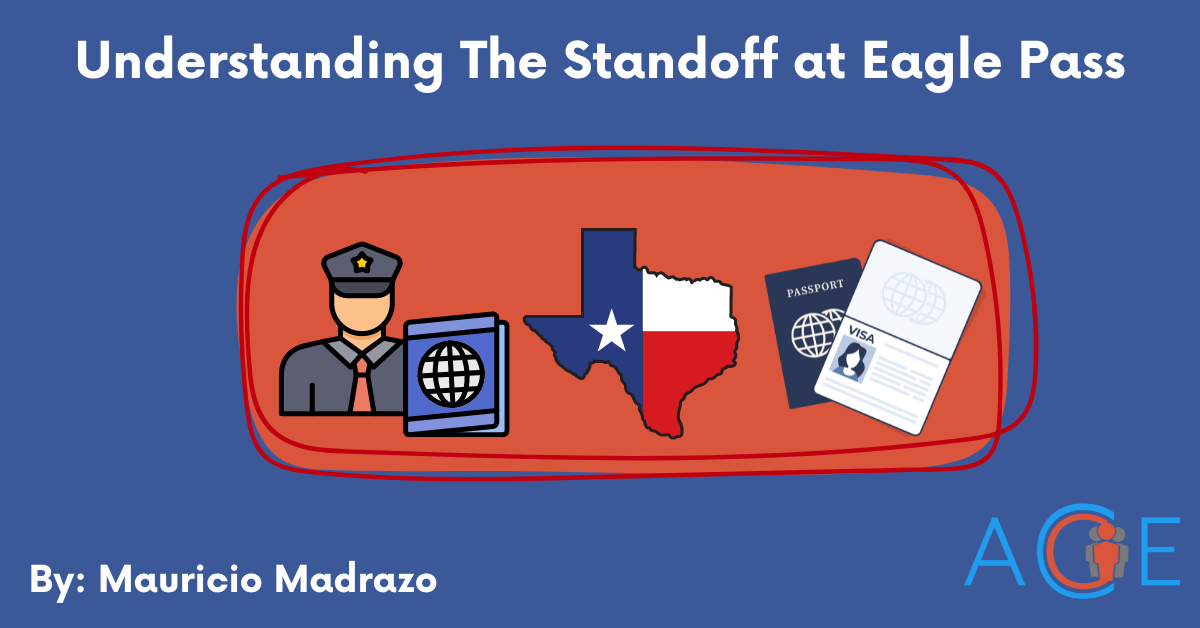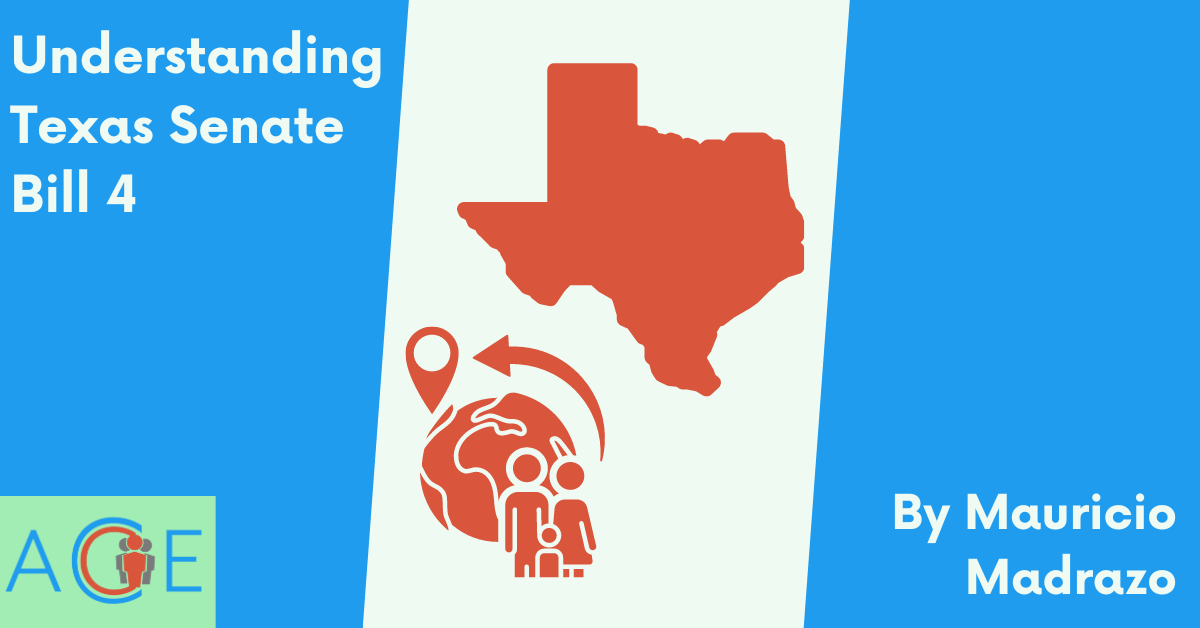The Background: Mexico, Biden, and Operation Lone Star
The United States has had tense relations with Mexico when it comes to border security since Andres Manuel Lopez Obrador’s election into the Mexican presidency. This has been due to the implementation of the “Security and Foreign Agents” law implemented in Mexico, which significantly strains U.S. operations on the Mexican side of the border for preventing undocumented immigration. Despite the legislation, the Lopez Obrador administration has shown its willingness to discuss border security with Biden administration officials such as Secretary of State Anthony Blinken and others.
The Biden administration has done the following in Immigration and Border Protection policy:
- Increased the refugee cap from 18,000 to 125,000 individuals
- Expanded access to family based green cards through the per-country caps
- Increased the annual total of diversity visas to 80,000
Despite this, Republicans believe that the measures taken by the Biden administration are not enough to handle the supposed “crisis at the border”. This claim includes the accusation of not enforcing border protection policies in any capacity. Citing these criticisms of the Biden administration, Texas Governor Greg Abbott launched Operation Lone Star in 2021 to address the issue of undocumented migration.
The initiative has claimed to have arrested 208,000 migrants, However, reliable sources have noted that arrests made beyond the southern border are being counted within figures released by the State of Texas. There are no concrete numbers on how many of these arrests are actually made on the border due to this data error. Despite this, governor Abbott has renewed disaster declarations for 43 counties located within the Texas border. He also began the deployment of 10,000 National Guard troops in 2021.
Rundown of the Standoff
On the 10th of January, 2024, National Guard troops placed by Governor Abbott blocked federal agents from entering Shelby Park in Eagle Pass. The agents, who were attempting to place surveillance apparatuses, were barred from entering the area while National Guard troops erected more barbed wire fencing on the riverside. On January 12th, 3 people (2 being children) drowned in Shelby park while agents were blocked from entering the area. After a week and a half of petitioning from the federal government, the Supreme Court of the United States allowed federal agents to remove the wire fencing and ordered the State of Texas to allow federal agents into Shelby Park.
National Guard troops would still be stationed in the area and keeping track of which federal agents enter the park, but they let said agents operate without restriction. On the 16th of February, Governor Abbott doubled down on his efforts for maintaining the National Guard in the area by promising the construction of an 80-acre base camp near Eagle Pass. The facility is set to house 1,800 to 2,300 National Guard troops, including those sent by states such as Georgia. This is despite reports of 1-in-5 troops having issues with payment for their deployment and shortages of equipment and supplies for National Guard troops stationed at the border.
Who Gets Affected?
The residents of Eagle Pass have been dealing with an unprecedented amount of military presence in their community. When asked about the situation that has unfolded, residents such as Carlos Herrera state that they want their community to go “back to normal”. The scene described in Eagle pass is compared to a “warzone in a third world country”. Although some residents are grateful for the increased efforts in border security, many believe the militarization of the border is a step too far. Furthermore, residents have also encountered a heightened amount of political protests making trips to Eagle Pass. One group, which has described itself as an “army of God”, is a convoy of trailer truck drivers wanting to ramp up support for the National Guard and their efforts in Shelby Park, as well as for former president Donald Trump in his re-election campaign.
After the takeover of National Guard troops at Shelby Park, an incident transpired in which 3 undocumented individuals drowned in the Rio Grande while attempting to cross illegally. This happened after federal agents were tipped off about their crossing and attempted to enter the Shelby Park area, which at the time National Guard troops refused to allow access to. According to residents, since the takeover of Shelby Park there have been more political protests and livestreamers in the Eagle Pass area than actual undocumented individuals attempting to cross through Shelby Park.
Support for the Standoff
Governor Abbott and many Texas Republicans have cited the “Invasion Clause” found within the U.S. Constitution due to the large influx of undocumented migrants crossing into Texas. Abbott has further claimed that the Biden administration is taking insufficient measures to counteract illegal immigration describing those who cross undocumented as “gang members” and “members of terrorist watchlists”. Attorney General Ken Paxton has gone as far as to say that Biden is “in partnership with the cartels”.
Republicans have also cited both the concern of human trafficking on the border and the increase of drug smuggling for narcotics such as fentanyl on the southern border. 13 Republican governors have flown into Eagle Pass with the explicit purpose of showing support to the efforts of Operation Lone Star and the National Guard troops stationed at Shelby Park.
Critiques of the Standoff
Legal experts view the “Invasion Clause” within the context of when it was drafted, and after determining the state of the country during the revolution they summarize that a textualist interpretation would not hold up today due to how drastic our political situation is. Further, the act of describing illegal immigration as an “invasion” was analyzed in Padavan v. New York. The Supreme Court of New York determined that even if we were to view the damage done by undocumented migration on the same level as a formal invasion from a foreign country, there is no clear political body or structure that is attempting to overthrow our own which disqualifies their action from an “Invasion Clause” violation.
Aside from jurisprudence disagreements, the opposition to the standoff have claimed the escalation to be an overstep in jurisdiction. Rather than seeing the claims being made by the State of Texas when it comes to border policy as legitimate, some have elected to view this as one of many attempts by the State of Texas to defy current Supreme Court jurisprudence with the goal of overturning U.S. v. Arizona. Some of the heavier accusations levied against supporters is how their ideologies are “extremist”, with said ideologies being compared to the January 6th insurrectionists.
Residents of Eagle Pass are uncomfortable with the militarization of their town, with calls to return to normalcy being common. The Eagle Pass real estate agent Carlos Herrera stated that residents “wish everything could go back to normal.” Despite this, Herrera discusses how many such as himself feel as if there is nothing they could do to stop or reverse the actions taken by National Guard troops stationed at Eagle Pass.

